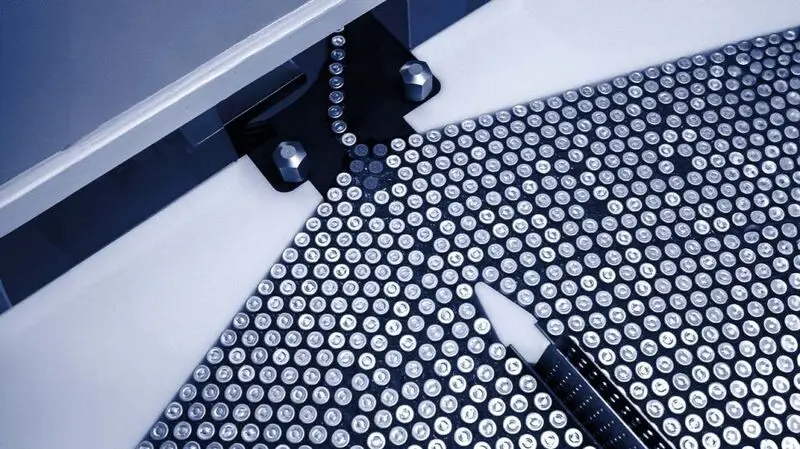
- The RSV virus affects about 64 million people around the world each year, causing about 160,000 deaths.
- RSV may cause severe symptoms, leading to hospitalizations and possible death, in newborn infants and older adults.
- Health officials recommend pregnant people get Pfizer’s maternal RSV vaccine during the third trimester of pregnancy to protect their baby during the first 6 months of life.
The Centers for Disease Control and Prevention (CDC) recently issued a
The CDC warns that low vaccination rates may lead to more severe disease and increased Healthcare capacity strain during peak respiratory virus season.
RSV is an infection of the lungs and respiratory tract that globally affects about
For most healthy adults, RSV presents mild symptoms similar to the common cold.
In vulnerable populations — such as
For this reason, the
Getting the maternal RSV vaccine could help protect infants from severe illness from birth through the first 6 months of life.
Dr. Laura E. Riley, chief OB-GYN at New York-Presbyterian/Weill Cornell Medical Center and chair of the Department of Obstetrics and Gynecology at Weill Cornell Medicine in New York City, told Medical News Today that RSV is
“In fact, [RSV] is the leading reason infants are hospitalized in the United States,” she said. “We should do everything we can to protect babies from RSV, and that’s why the vaccine is so important.”
Dr. Silvia M. Abularach, an obstetrician-gynecologist affiliated with multiple hospitals in Maryland, including Mercy Medical Center in Baltimore, agreed.
“For the first few weeks of life, infants are not able to mount a vaccination response and immunity and adequate immunity response,” Dr. Abularach explained to MNT.
“So that’s why infants don’t get vaccinated for a couple of months. The first few months of life is the most vulnerable time for these infants.”
“The take-home point is [that RSV] is not going to kill a young mother,” noted Dr. G. Thomas Ruiz, a board-certified OB-GYN and lead OB-GYN at MemorialCare Orange Coast Medical Center in Fountain Valley, CA. “They’re not going to get very sick — they’re going to get cold-like symptoms and maybe a cough. It doesn’t tend to affect adults.”
“But [RSV] can be a devastating disorder for newborns, leading to hospitalization and death from pneumonia,” Dr. Ruiz continued. “So you’re really [getting] the vaccine to protect your baby.”
It is recommended that pregnant people get the maternal RSV vaccine between 32–36 weeks gestation to prevent RSV in their infants once they’re born.
“The idea is to vaccinate the mothers in this particular window to protect these infants at their most vulnerable time, which is immediately after birth and for the first six months, especially for infants that are born during the RSV season,” Dr. Abularach explained.
“The antibodies [the infants] get is via the mother and the
Dr. Jourdan Triebwasser, assistant professor of maternal-fetal medicine at the University of Michigan Health, added that ACOG recommends the maternal RSV vaccine for pregnant individuals during
“Thousands of infants under (the) age (of) 6 months are hospitalized each year nationwide because of RSV infection,” Dr. Triebwasser told MNT.
“While some babies may only need observation or supplemental oxygen, others need intensive care and mechanical ventilation. Vaccination during pregnancy is a powerful tool to reduce the risk for your baby,” Dr. Triebwasser said.
The RSV vaccine Abrysvo made by Pfizer Inc. was
The FDA approval was based on results from the vaccine’s phase 3 clinical trial where no safety signals were detected in either pregnant study participants or the children born after they received the vaccine.
Dr. Ruiz told MNT the RSV vaccine is incredibly safe, and there’s no reason for a pregnant person not to get one unless they are allergic to the vaccine’s carrier medium.
He also said another benefit of the maternal RSV vaccine is that it’s preservative-free.
“Preservative-free means there’s less things within the vaccine that’s going to cause an allergic reaction [for] the mom,” Dr. Ruiz explained.
“(With) the maternal vaccine, they make sure to give them something that is as nonreactive to the body as possible, so the term we use is preservative-free.”
Dr. Triebwasser noted the RSV vaccine is a recombinant antigen vaccine, meaning it’s not a live virus vaccine.
“Some people are hesitant to receive vaccines during pregnancy, although we have a lot of data on older vaccines, including the flu vaccine, that maternal vaccination is safe for the pregnant person and babies. There may be an association between RSV vaccination and preterm birth, although that is not certain. To limit (the) potential risk of preterm birth, the recommendation is to give (the) RSV vaccine at 32–36 weeks.”
— Dr. Jourdan Triebwasser, assistant professor of maternal-fetal medicine
Currently, the only RSV vaccine FDA approved as a maternal vaccine is Pfizer’s Abrysvo vaccine.
The pharmaceutical company GSK plc also makes an RSV vaccine called Arexvy. However, the FDA has only approved it for
Dr. Riley advised that pregnant people who want to arm themselves with accurate information on the vaccine they should be taking can talk with a healthcare professional or visit
“Abrysvo is the only RSV vaccine approved for use in pregnancy,” Riley noted.
“Not all doctors’ offices and pharmacies have Abrysvo yet. Pregnant people can search for pharmacies that have the vaccine on the Abrysvo website,” she added.
Dr. Abularach said a pregnant person can always ask their doctor to confirm which RSV vaccine they should have.
“If they choose to go to a commercial pharmacy like CVS or Walgreens, which have them available now — obviously confirmation there as well — asking the question to make sure that they’re getting the right vaccine,” she added.
According to Dr. Edward Liu, chief of infectious diseases at Hackensack Meridian Jersey Shore University Medical Center, currently, the reported side effects of the RSV vaccine seem mild and include:
- pain at the injection site
- muscle ache
- sore arms
- headache
- nausea
“No side effects are reported for babies,” Dr. Liu continued. “(The) RSV vaccine cannot be given to a newborn infant. Babies’ immune systems are not fully developed and sometimes do not respond to vaccines.”
Dr. Abularach agreed and stated the studies that have so far been published about the RSV vaccine in pregnant women have not reported any safety concerns.
“The main side effects have been mild to sort of moderate,” she continued. “And it’s really the same side effects that you would expect with most vaccines — pain at the injection site, muscle pain, sometimes nausea or headache, relatively mild things. Some people have concerns about vaccines, and we always recommend that they discuss that with their provider, and shared decision-making takes place between the provider and the patient, so this would be no exception — we would recommend that as well.”
— Dr. Silvia M. Abularach, OB-GYN
If a pregnant person does not want to get the maternal RSV vaccine, there is another option to protect the baby from the disease.
“A new injection
Nirsevimab is available to infants from birth up to 8 months old, who are at highest risk for severe illness from RSV.
Dr. Riley noted that a newborn might be able to get a dose of nirsevimab — which is a
“Nirsevimab is a shot containing lab-made antibodies that protect against RSV,” Dr. Riley explained. “It is not a vaccine, but it helps the baby build immunity against the virus. Both the vaccine during pregnancy and nirsevimab after birth are safe, effective options for protecting the baby from RSV.”
“It may be hard to get nirsevimab this fall and winter. An OB-GYN may be able to help someone find out if nirsevimab will be available for their baby after birth,” Dr. Riley noted.





